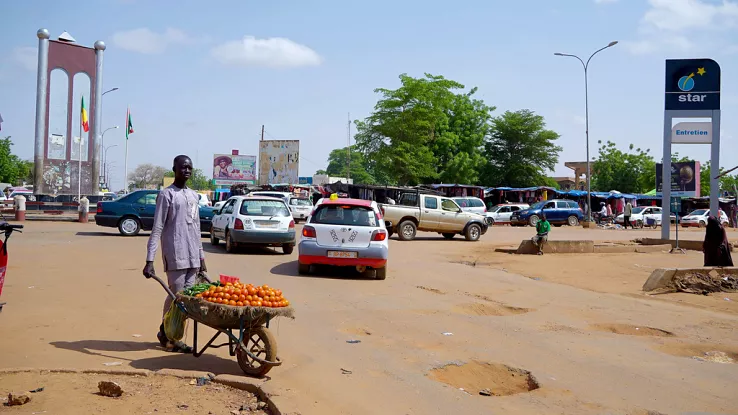One year has passed since mutinous soldiers overthrew Niger’s president, Mohamed Bazoum.
Coup leaders said they deposed the elected government for two key reasons: its security and economic crises.
But those challenges have not only persisted, they’ve worsened.
And the country’s 26 million people, among the world’s youngest and poorest, are struggling.
The junta severed ties with key international partners, who imposed sanctions and suspended support affecting close to half of Niger’s budget.
On the streets, where thousands of people once cheered the coup, there is growing frustration.
Niger was the latest nation in West Africa to be ruled by a military junta, joining Mali and Burkina Faso.
The three countries went on to form what they called the Alliance of Sahel States, shortened to its French acronym AES.
They also announced their departure from the regional bloc known as ECOWAS, short for the Economic Community of West African States.
ECOWAS acknowledged their announcement but has not yet declared that the countries are no longer part of the bloc.
Following the coup, Benin closed its border with Niger, cutting off the country’s access to the port of Benin – the main route for imports.
ECOWAS also imposed sanctions, but they were lifted earlier this year.
With the border with Benin still closed and foreign aid petering out, residents in the capital, Niamey, are feeling the economic pinch.
Hamssatou Saley, who came to Niamey’s Wadata Market to buy food for her family, said basic staples were “really not affordable”.
Another resident, Hamidou Ibrahim, said people like him needed prices to come down.
Niger is one of the poorest countries in the world, ranking at 189 out of 193 on the United Nation’s 2022 Human Development Index.
Many heads of families are providing for a large number of people on one salary.
Harouna Mamane Nour used to work at a food processing company, but is now unemployed, like many other Nigeriens.
He says he wants the authorities to find a solution to the rising cost of living.
Junta leaders from Mali, Burkina Faso and Niger met in Niamey earlier this month.
They ruled out a return to ECOWAS, which they accused of bending to Western interests.
Like Mali and Burkina Faso, Niger has pursued military relations with Russia and expelled French forces from the country.
U.S. forces have also agreed to leave the country by September 15.
As Niger’s military leaders consolidated their grip on power, they promised a three-year transition period to civilian rule.
Analysts now say that is unlikely to happen on time.
